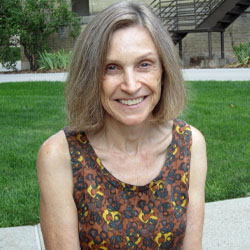You Don’t Have to Know Where Your Kids Are, Just Where They Aren’t: Exploring Free-Range Parenting in the Bolivian Amazon
 Authors:
Authors:
Helen Elizabeth Davis, Elizabeth Cashdan
Abstract:
Over the last few decades, parenting norms, particularly in the United States and Western Europe, have shifted strongly in favor of intensive parenting techniques, which place emphasis on constant direct supervision as well as constant protection from risks of harm (Ashton-James, Kushlev, & Dunn, 2013; Thomas, Stanford, & Sarnecka, 2016). These norms have been further intensified in response to stricter legal consequences associated with “neglect” and an increase in the availability of written resources and online media focused on improving parenting skills (Radey & Randolph, 2009). As an alternative to intensive parenting styles and tightening social norms, “free-range” parenting has emerged as an alternative strategy. This movement, first popularized in the United States by the pediatrician and author Spock (1946), suggests children can and should function independently (i.e., lim- ited parental supervision) as they age and develop. However, how these strategies help or hurt child learning is still not fully understood.
This publication can be viewed here
